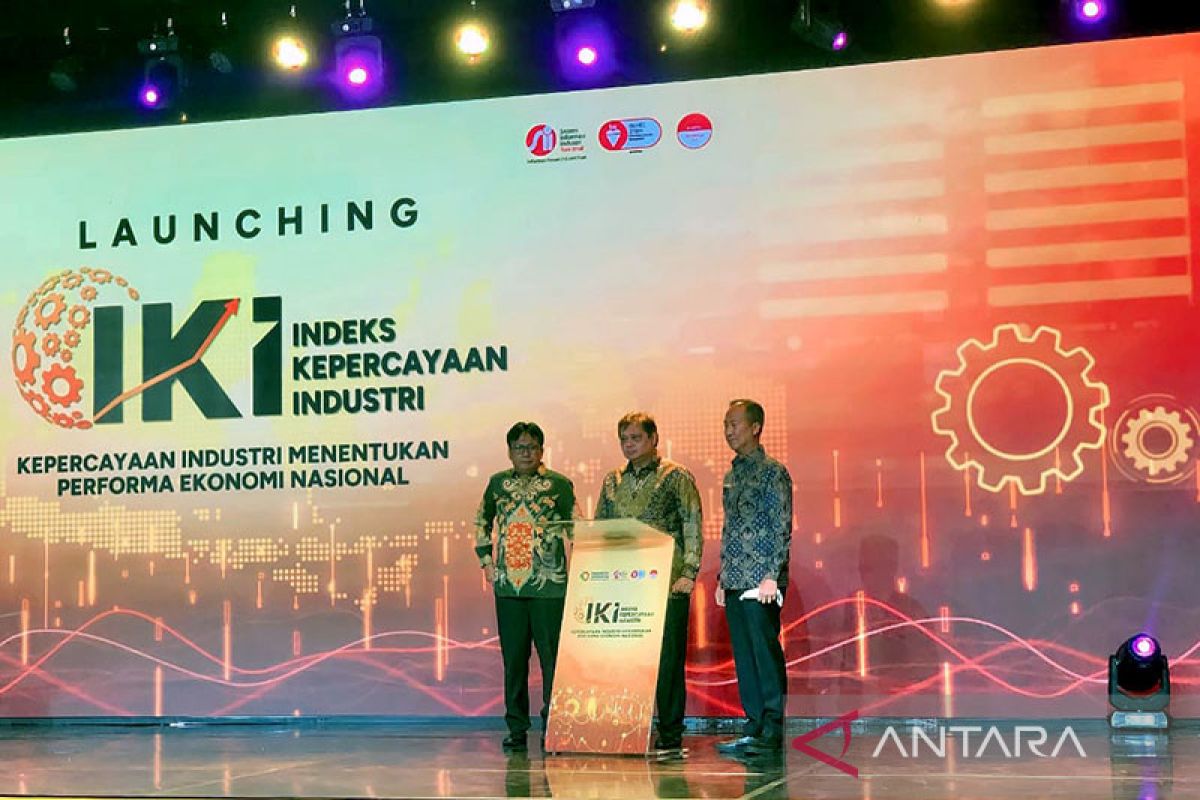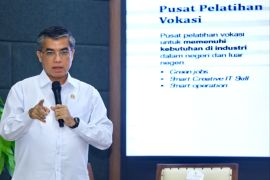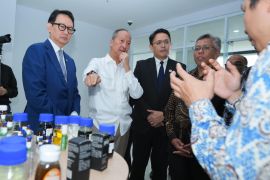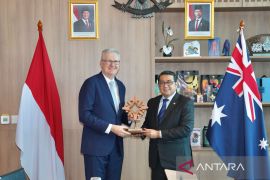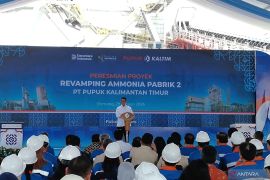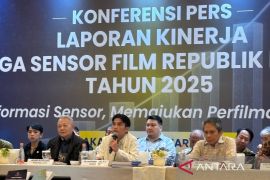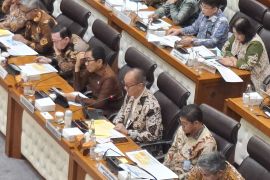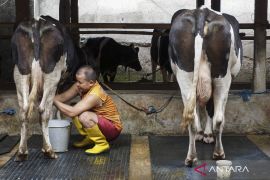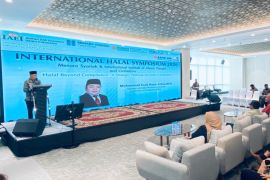Gumilang often asked himself how accurate is the result of the survey undertaken by the data analysis institution in reflecting the condition of the domestic industry.
This is because the analysis service provider institution is often closed off toward the companies that it surveys. Thus, the minister has difficulty in comprehensively understanding the condition of the national industry.
This is despite the fact that the information is crucial to make a suitable decision in the industry sector.
As a guide for the domestic industry, the minister then took an initiative to conduct a similar survey to monitor the condition of the industry on a periodic basis.
Thus, the government can immediately respond to problems impacting the industry to avoid bigger losses.
Related news: Indonesia Manufacturing Center to boost MSMEs' productivity: Minister
The initiative is called the Industry Trust Index (IKI). IKI is an indicator for the manufacturing industry's level of trust or optimism toward the economy.
IKI is also used to diagnose problems affecting the industry sector to find solutions quickly and accurately.
To determine IKI's figure, the Industry Ministry distributes questionnaires to 23 industry subsectors to be filled by two thousand respondents in relation to the three determined variables: new orders, product stock, and production.
To maintain credibility of data, the ministry urged managerial-level staff in the companies to fill questionnaires through the National Industry Information System (SIINas).
Related news: Cybersecurity Hackathon connects digital talents, industry: ministry
Industry companies deliver their reports on the 12th - 23rd of every month.
After receiving the complete data, it will be processed by the Ministry's Data and Information Center (Pusdatin) to become the IKI figure and will be released at the end of every month.
To maintain the credibility and accuracy of data, the minister urged the industry to deliver data based on the actual conditions.
Data submission is not just mandatory but also becomes one of the vital methods to monitor development of the national industry.
However, the industry need not harbor concerns about the security and secrecy of the submitted data since the minister and his officials are committed to preventing data leaks.
Throughout this time, there have been indexes that serve as a reflection of the industry's productivity, such as the Manufacture PMI by the Standard & Poor's or S&P and Prompt Manufacturing Index (PMI) by Bank Indonesia.
As a comparison, IKI, with the involvement of 23 industry subsectors and two thousand respondents, encompasses more industry subsectors and respondents.
Meanwhile, the Manufacture PMI involves 400 respondents, while the PMI involves 600 respondents and eight industry subsectors.
To this end, the existence of IKI will enrich the industry development data reference used by all stakeholders of the industry sector.
With this, IKI can be said to provide more detailed information of industry subsectors. Despite this, the minister still uses the manufacture index released by the S&P and BI as a comparison.
Related news: IMC accelerates mastery of technology for manufacturing: Minister
IKI's figure
IKI itself will provide the index figure that can be interpreted as the condition of the national industry.
If the IKI figure is between 0 and 50, then it can be interpreted as a contraction in the domestic industry.
If the figure is at 50, then it means the condition is stable. However, if the figure is above 50, then this shows that the industry sector is considered expansive.
The interpretation is determined based on three variables: new orders, product availability, and production.
According to the minister, IKI does use less variables than S&P that has five. To this end, the ministry accepts various inputs to improve upon this index.
During its premiere unveiling, the ministry noted that the IKI figure in November 2022 had reached 50.89, thereby translating to the fact that the national industry is considered expansive and there is optimism for the national economy.
From the result of the survey of 23 industry subsectors, 11 industry subsectors are in an expansive condition. These 11 industry subsectors represent 71.3 percent out of the contribution to the Gross Domestic Product (GDP).
From these 11 subsectors, transportation equipment subsectors obtained the highest IKI value of 60.
Meanwhile, the 12 other industry subsectors are in pressure, with the textile subsector is one of the subsectors that experienced a growth decline.
The ministry is striving to gain a clear understanding of the conditions of the textile industry to immediately address the matter.
Related news: Developing new commodity-based alliance urgent for Indonesia: DPR RI
Industry's response
IKI's unveiling drew praises from the national industry actors.
Food and Beverage Entrepreneurs Association's (Gapmmi's) Head Adhi S. Lukman stated that IKI has the potential to improve the trust of both domestic and international investors.
This is because IKI represents the condition of the national industry with strong data. According to Lukman, IKI has the potential to quickly save the domestic industry that is experiencing a decline.
He expects that IKI will be implemented in a consistent manner by the Industry Ministry while upholding its commitment to maintain data secrecy.
He believes that IKI can truly reflect the condition of the national industry on the field. He also expects that the food and beverage industry can provide accurate data based on the real conditions.
Similar praise was also conveyed by Chairperson of the Indonesian Motor Vehicle Industry Assocation (Gaikindo) Yohannes Nangoi, who called IKI as a data-collecting breakthrough to illustrate the domestic industry's condition.
With IKI, the condition of the national industry can be measured and detected every month, he noted.
Alvin Toffler, a writer and futurologist from the United States, stated that one can use the entire quantitative data to make a decision.
With this, developing IKI is not merely about knowing the national industry's condition but also developing the power of data to make an accurate and quick decision, so that the national industry can soar higher.
Related news: Minister calls for development of local gaming industry
Related news: Ministry, shoe brand collaborate to revive Cibaduyut footwear industry
Translator: Sella P G, Fadhli Ruhman
Editor: Fardah Assegaf
Copyright © ANTARA 2022
